The project
VET4 Social Impact is a Capacity Building initiative in the field of Vocational Education and Training (VET), funded under the Erasmus+ programme, which aims to reinforce and transform the TVET ecosystems in Egypt and Palestine. By promoting an entrepreneurial culture, fostering the creation of vocational clusters, and enhancing the quality, accessibility, and inclusiveness of VET-business services, the project seeks to generate positive socio-economic impact at the local level, particularly for vulnerable groups such as women and youth.
Rooted in the long-standing engagement of VIS and its partners in the Southern Mediterranean region, the project aligns with key regional strategies such as the EU’s New Agenda for the Mediterranean and the Economic and Investment Plan for the Southern Neighbours, as well as with national development priorities in both Egypt and Palestine in the areas of education, employment, and social innovation.
At the core of VET4 Social Impact lies the ambition to establish Quadruple Helix model based ecosystems—connecting TVET providers, businesses, policymakers, and civil society—that are capable of driving social innovation. This concept frames innovation not merely as technological advancement, but as the capacity to respond creatively and sustainably to complex societal challenges. In this perspective, entrepreneurship becomes a strategic tool, not only for individual empowerment but also for systemic change, particularly when linked to vocational training and anchored in community needs.
To operationalise this vision, the project will implement the Centres of Vocational Excellence (CoVE) model and apply the EntreComp framework in both countries, drawing inspiration from the experience of the European Training Foundation (ETF) in Tunisia and capitalising on the consortium’s expertise. EntreComp will serve as a flexible, integrative tool to design educational pathways, define evaluation criteria, and build Entrepreneurial Centres for Vocational Excellence (EntreCoVEs) that will enable the development of entrepreneurial skills as a core element of the local VET-business ecosystem.
Partners
The project consortium brings together a diverse and complementary set of actors from Europe and the South Mediterranean region, reflecting a strong commitment to co-design and implement impactful solutions within the TVET ecosystem. It includes TVET providers such as CNOS-FAP, CARDET; Policy makers in the VET environment such as NTC, BCCI, CEEBA; NGOs with longstanding experience in EU-Middle East cooperation and capacity building, including VIS, AKMI, and CARDET; as well as universities like BU and networks of experts in business development and social entrepreneurship—namely BU, CNOS-FAP, CEEBA, and CARDET. These partners are already active in Egypt and Palestine and have been collaborating to develop integrated strategies for capacity development and institutional strengthening, aimed at reinforcing the link between vocational training and socio-economic development. Their joint work is embedded in multi-stakeholder partnerships that VIS and its allies have helped establish locally, and which form the basis for a more enabling and sustainable VET-business environment.

